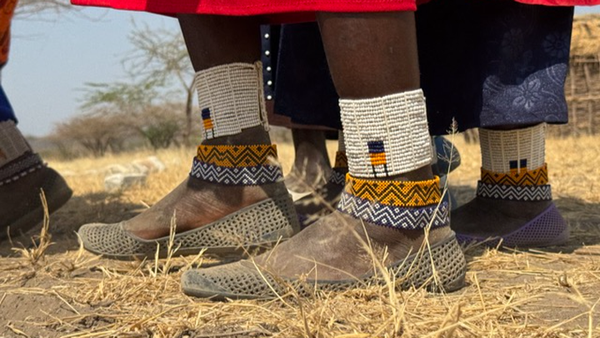Netflix’s Sex Education Might Be Providing the Actual Sex Ed Pakistanis So Desperately Need
The absolute avoidance of candidly talking about sex has left Pakistanis muddle through - until the third season of Sex Education dropped.

Access the Audio Read version of this article directly on Spotify for Podcasters.
"Season three also showcases couples therapy and its benefits, which, if made mainstream in Pakistan, might actually help half of marriages work out."
Trigger warning: Sexual assault
This article contains Sex Education season three spoilers
For a country that considers anything related to sex as ‘vulgar’ and ‘profane,’ we Pakistanis sure love consuming content about it.
While there’s already a national ban on pornographic websites, recent measures by the Pakistani government to “curb vulgar content among the youth” include banning TikTok - for the fourth time and counting - and excluding the chapter on reproduction from school books (because it’s too “dirty”).
The absolute avoidance to candidly talk about sex has left Pakistanis muddle through. Most importantly, it hinders other important conversations about consent, safety, contraception, and sexual health.
So where do Pakistanis go from there? They make do with what they can and turn to convenient streaming options because we’re visual learners at best. On Pakistani Netflix, you’ll likely find most trending shows and movies to be borderline softcore porn. I’m talking about Sex Life, 365 Days, and 50 Shades of Grey - not exactly the best or most realistic material to learn from.
But when Sex Education started trending in September after its third season dropped, it looked like it could actually provide sex education that Pakistanis could use.
Despite its name, the show touches upon a lot more areas than sex. While its key takeaway is how being sex positive is beneficial as opposed to being shameful, it encourages learning about biological and emotional aspects of sex, love, relationships, and identity through its storyline.
Sexual shaming is sadly a common occurrence in Pakistan, with a single video or rumour being enough to bury a good reputation six feet under. Sex Education viewers might remember the “it’s my vagina” scene in season one; it packed a powerful punch, not only regarding solidarity against shaming but to also love your good bits. The theme was also present in Aimee’s enthusiastic discovery of vulvas’ uniqueness, and Dex’s ‘peensecurity’. In the lack of a reproduction chapter, this show comes a close second to help Pakistani teenagers know tidbits about their genitalia. “I’m a little iffy on the display of nudity in the show,” says B, a 20 year-old male viewer from Pakistan, “especially since a lot of minors can have access to Netflix, but I definitely think it gives great guidance on the sex related topics.”
When Aimee is sexually assaulted, she gets support from the people around her. In Pakistan, victim blaming supersedes helping the affected, with initial reactions almost always being a million invasive questions about what the victim was doing or wearing at the time, even from family. Jean’s gentle but important reminder to Aimee that what happened to her has nothing to do with her smile and her personality is enough to counter all that.
Speaking of Jean, normalising the presence of a sex therapist is a big enough feat for the show as a whole - so is showing healthy, casual sex between older people on TV. Season three also showcases couples therapy and its benefits, which, if made mainstream in Pakistan, might actually help half of marriages work out. “It’s so important to have a show that highlights sex positivity, delves into sexual assault, and portrays the underlying value in education,” says M, a 27 year-old Pakistani female viewer. “In Pakistan, we aren’t given that access, and having that narrative brought to life through a show is a great step to create awareness.”
The beauty of the show is that it doesn’t only focus on sexual love, and it could also help Pakistani viewers get in touch with their emotions. Maeve and Aimee, Eric and Otis, are both platonic, loving friendships that demonstrate you can be extremely affectionate with your friends without insinuating anything more, and that emotional vulnerability is not weakness.
Sex Education’s normalisation of the messy navigation of confusion and grief at all ages is as important as it is meaningful. Some examples include Jackson’s confusion about his sexuality after liking Cal, Hope’s struggle with infertility, Lilly being more mindful of her alien obsession, and Mr. Groff’s relationship with his toxic brother while dealing with divorce and unemployment. The whole season strives to make everyone feel seen and validated, all the while showing these rough journeys are actually worth it.
The fact that Sex Education's third season was so fully embraced by the Pakistani population when it could have easily been frowned upon, proves just as much people needed to learn about these fundamentals of life. And to see it trending was more welcoming than weird.





